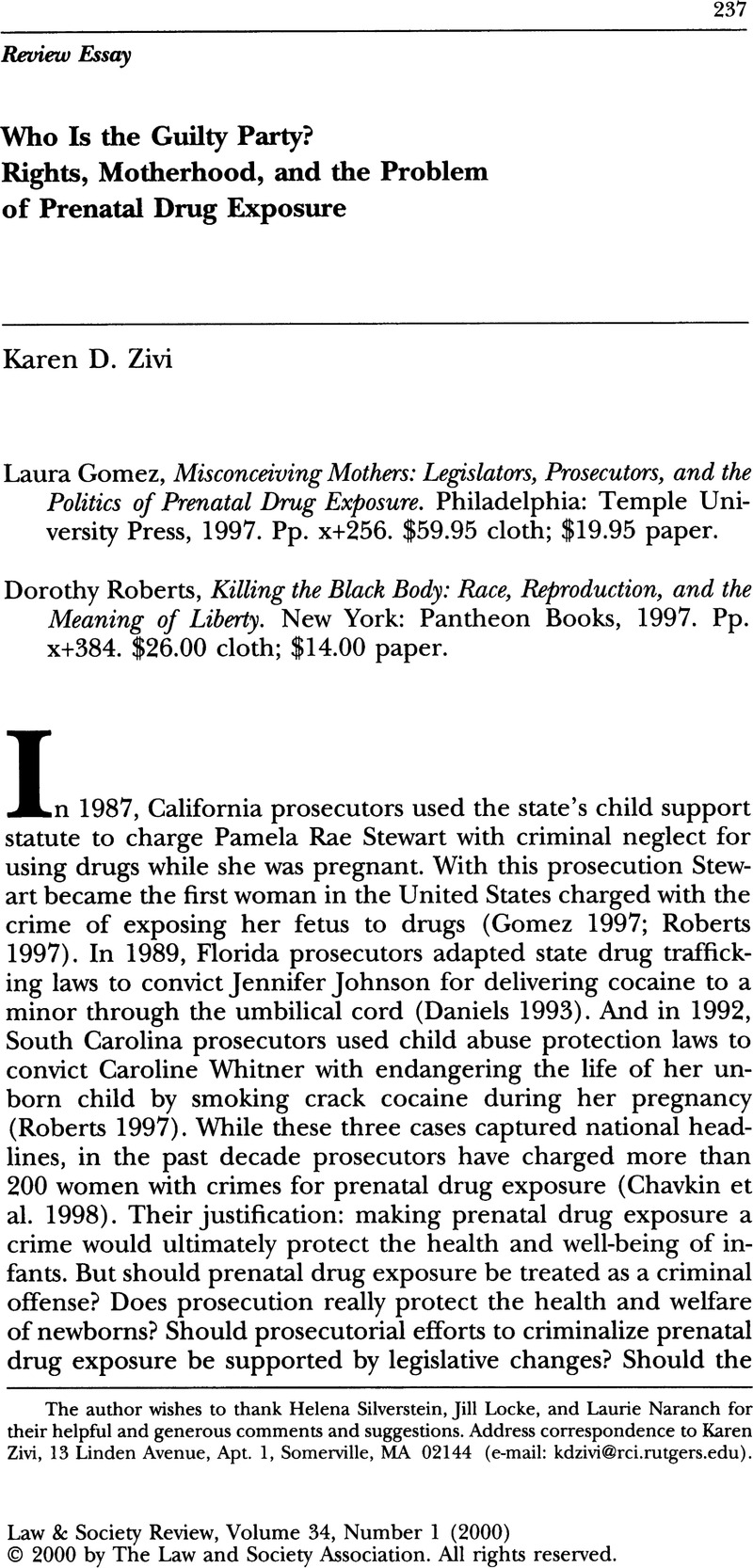Crossref Citations
This article has been cited by the following publications. This list is generated based on data provided by Crossref.
Kang, Hyun-Ah
2003.
Comparative Analysis of State Statutes.
The Social Policy Journal,
Vol. 2,
Issue. 4,
p.
71.
Toscano, Vicki
2005.
Misguided Retribution: Criminalization of Pregnant Women Who Take Drugs.
Social & Legal Studies,
Vol. 14,
Issue. 3,
p.
359.





